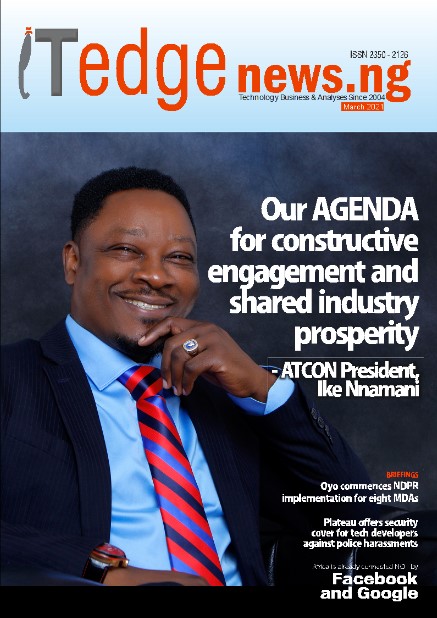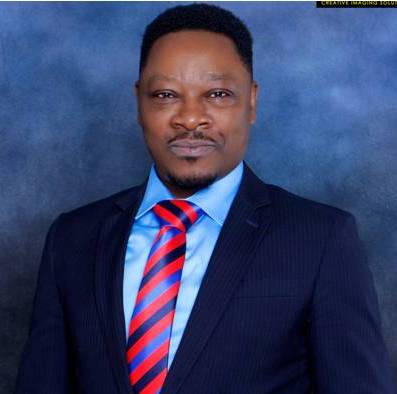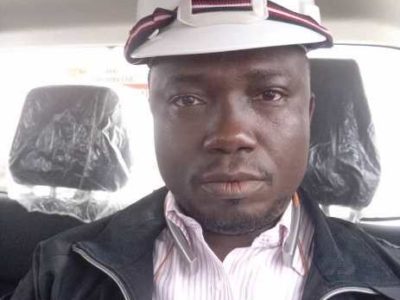The new president of Association of Telecommunication Companies of Nigeria (ATCON), Ike Nnamani, comes to the job with loads of experience managing a private telecom entity in Nigeria and navigating the politics of the sector. Nnamani, CEO of Medallion Communications Limited, an interconnect clearinghouse and co-location data service company, has led his company through the tumultuous terrain of Nigeria’s business climate to build one of the stable and robust ICT companies across West Africa where Medallion has spread its presence in nearly two decades of data and connectivity business. For this, the industry has noticed. Just last year, he received the Special Recognition Award for his contribution to the telecom sector at the 2020 Nigeria Tech Innovation & Telecom Awards (NTITA). Nnamani was the 2019 NANS Man of the Year, 2019 Nigeria Telecom Industry CEO of the Year, and 2019 ICT Industry Entrepreneur of the Year. In 2018, he was named the 2018 ICT Entrepreneur of the Year at the Beacon of ICT Award. His company, Medallion, has consistently emerged as an Industry Leading Star at the annual West Africa Convergence Conference (WACC) managed by Knowhow Media International, publishers of IT Edge News. Now, as the president of the umbrella body for IT and telecom companies in Nigeria, Nnamani, must engage government and policy makers even as he works to solidify ATCON as a platform for engagement and mutual industry growth. In this interview, he tells IT Edge News, he is resolutely committed to constructive engagement with regulators and the government at all levels. He affirmed the need to strengthen ATCON as an industry association for the common good of all stakeholders. Getting ATCON to work better for its members summed up his agenda. He shares this with Anthony Nwosu, IT Edge News.

Congrats as you begin the journey as the new President of ATCON. What are the key agendas you are bringing on board?
First, I must commend our immediate past president – Engr. Olusola Teniola for a great job he has done in taking the association to the current level. A lot has been achieved in the last four years he was at the helm of affairs. The new exco will continue the great work the former exco did. Most of us were members of the former exco in various capacities so there is legacy knowledge of the operation of the association that remains. We also have some new members in the exco so that will bring new ideas and make the association stronger.
ATCON is the premier telecom and ICT association in Nigeria with membership of over 160 companies at the moment. We currently have new requests for membership being processed. Our class of membership cuts across eight types of services providers namely telecom operators, equipment vendors, value added service providers, infrastructure service providers, equipment manufacturers, internet service providers, telecom and ICT consultants, and FINTECH/e-commerce operators. We have over the years engaged with the relevant stakeholders in the country to move the telecom and ICT industry forward. Our interventions have helped advanced the telecom and ICT services in the country, consistently leading to increase in the contribution of telecom and ICT to Nigeria’s GDP over the past decades. We have helped extend telecom and ICT services across the country especially the rural and underserved areas of the country as well as promote broadband penetration across the country. We have participated in virtually all crucial requests for stakeholders’ intervention by the regulators and government agencies including the recently concluded 2020 to 2025 national broadband plan and the Nigerian national cybersecurity policy documents.
The new exco will address three main areas: (1) strengthening the secretariat for more efficient service delivery (2) strengthening the membership for growth (3) strengthening the telecom and ICT space for better service delivery to the subscribers.
We will modernize the operations of the secretariat to be in line with present day realities for efficient and cost-effective operations. The Covid-19 pandemic has revealed that organizations should be structure for remote operations when it becomes impossible to work in a physical office location. We will be upgrading our secretariat infrastructure to ensure operations and meetings can happen remotely including future AGMs if needed. We will also ensure the secretariat staff are well trained and equipped to be able to handle the changing and progressive nature of membership and the industry in general. About two years ago, we developed a financial sustainability plan for the association and so far, the implementation of the plan has made the association financially stable and in a good place financially. We will continue with the implementation of the plan.
We will place a lot of emphasis on signing up new membership for the association and also ensure we have events and activities that promote the businesses of our members. We will engage with the various regulatory and government agencies both at the state and federal level to ensure our members’ needs are met and that there is enabling environment for the efficient and cost-effective delivery of telecoms and ICT services in the country. Our engagement will be firm but non-confrontational to ensure success. We will also encourage corroborations among our members so there is harmony in the industry and progress for all stakeholders. We will be introducing some new membership benefit packages to ensure our members get the best value for their involvement in the association.
Our engagement will ensure that new classes of services are introduced to the subscribers at affordable rates while not compromising on the quality of service

In the last few years, ATCON has become a platform for both political and business engagements; do you intend to leverage this to pursue the agenda objectives of your members as telecoms business entities?
While we interact regularly with the government either directly at the federal, state, or local governments or through any of the government agencies and regulatory bodies, we remain non-political. Our engagement is limited to ensure the telecom and ICT space in the country is well served. We will maintain constructive engagement with all arms of government for the growth of the industry.
We have realized that a constructive engagement with the relevant government agencies helps to reduce friction and ensure that areas of disagreement on any policy or guidelines are resolved in a timely manner. We changed our approach in engaging with the government from being confrontational to cordial meetings where we point out the social-economic benefits that having a robust telecom and ICT infrastructure in the various states brings to the people of the state. This has made the state government to now see telecom and ICT service providers as partners in the provision of dividends of democracy to the citizens and who should be supported to establish services in the various states. This has been a win-win for all parties involved.
ATCON as a body has both big operators and small ones that are struggling to survive. What are your plans to lead the new ATCON Excos and drive activities to help small operators weather the storm and the big ones to do better?
We are very mindful of this situation. The biggest challenge confronting the smaller players is lack of adequate funding. This is why one of our key focus in this new Exco is to ensure we bridge the funding gap in the telecom and ICT space in Nigeria. We are also going to be pushing the implementation of local content policies in the telecom and ICT space like is obtainable in the oil and gas industry. This will ensure the outsourcing of key service delivery to smaller service providers most of whom are indigenous players.
We have always focused on creating a cordial environment where all the service providers irrespective of their size are able to meet and interact on the challenges facing the industry. Every year we organize several stakeholders engagement events where CEOs and top management of the various organizations meet to discuss and review industry pressing issues and how best to work together. These meetings and interactions have helped bridge the gap between the smaller and bigger telecom operators and several joint projects have been initiated at these events. The industry is an ecosystem where we all need one another and partnership among service providers will continue to be promoted under the new Exco.
“Every year we organize several stakeholders engagement events where CEOs and top management of the various organizations meet to discuss and review industry pressing issues and how best to work together. These meetings and interactions have helped bridge the gap between the smaller and bigger telecom operators.”
VAS firms have been crying wolf lately due to revenue sharing formula between them and the big telcos. What is your take on this?
The VAS aggregator license was specifically setup to resolve this issue. The operational guidelines for the VAS aggregator service spells out the new sharing formula for VAS services and this is in favour of the content developer unlike in the past. So once the VAS aggregator class of service is fully implemented, this issue will be resolved.
What is your take on the Critical National Infrastructure (CNI) bill that has been waiting to be passed into a law for many years now?
It is essential for the growth of the industry as well as the guarantee of efficient service delivery to subscribers. It is also critical from a national security standpoint. We hope it is signed into law soon.
Can you shed light on why the cost of the data centre is higher in Nigeria?
This is not an accurate statement to make. We have to separate the cost of taking up services at a data centre (as a service provider) from the cost of taking up hosted services from a service provider who is located in Nigeria. The cost of actual data centre services in Nigeria is at par and in some cases even lower than some countries. This is despite the fact that the cost of running a data centre in Nigeria is more expensive than most of the countries of the world due to lack of efficient public power supply. However, when it comes to hosted services, it is true it may be more expensive here than in well-established economies. The reason for this is obvious. It is a volume business. The more clients you have using a hosted infrastructure the lower the unit cost. That is why we can get very low hosting cost from a company like go-daddy in the US while you can’t get the same pricing here in Nigeria. Go-daddy has got millions of monthly users so the unit price is now very low compared to the Nigerian company. Over time as more people patronize the Nigerian based hosting companies the unit price will drop significantly. The government can also do something in this regard by helping with subventions to assist with local hosting of services
“The traffic at the Nigerian Internet Exchange has increased more than 10-fold over the last few years and this is a testament to the fact that there is increased local peering and connectivity within the country.”
How does Medallion Data Centre play in this game?
As you are aware the Medallion data centres are some of the most important in the country. Not only is our data centres the most carrier neutral interconnected facilities in the country, we have helped promote the digital economy from an infrastructure standpoint. Our current plans include expanding the existing facilities as well as building new data centres across the country. This will improve quality of service, lead to expansion of services to the underserved parts of the country, create employment, and facilitate the development of local content
A lot of Nigerian corporate bodies are still hosting overseas. What is your take on this as it concerns data sovereignty and capital flight?
That is changing significantly over the last few years. We now have top class data centres in the country and we are attracting the big global players who are now installing their servers and content delivery networks in the country so there is local access within the country. The traffic at the Nigerian Internet Exchange has increased more than 10-fold over the last few years and this is a testament to the fact that there is increased local peering and connectivity within the country. More work still needs to be done but there is significant improvement over the past situation
Masking is a recurring issue. How can this be eliminated in the telecom ecosystem?
I believe the regulator is working to address this issue. There is a study going on with respect to the call rates between local and international voice traffic. Once that is addressed the issue of call masking will be taken care of. It is purely an economic issue resulting from the huge difference in the termination rate between local calls and international calls































